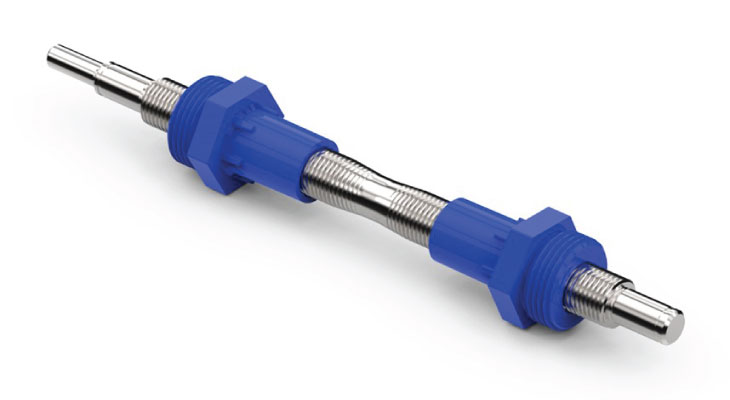The Importance of Precision Acme Screws in Medical Devices

The medical field is advancing at an unprecedented rate. One of the keys to this rapid advancement is the medical industry's increasing use of technology. One of the unheralded components doing the most to propel the medical industry forward is the precision acme screw.
Acme Screws work with an acme nut to convert rotary motion into linear motion by turning either the screw or nut. There are many reasons why these intricate components are driving innovation in many industries, not just medicine. Some of the reasons are their affordability, quiet operation, design flexibility, and their precision. Product developers increasingly realize the many benefits of precision rolled acme screws and see their inclusion in many new medical applications.
When it comes to the medical industry, there are two very different yet critical pieces of equipment that Helix acme screws are helping to advance -- the automated syringe pump and the automated hospital bed.
Here's a closer look at each application:
Automated Syringe Pumps
Why they're essential: These small infusion pumps serve the primary purpose of injecting patients with exact amounts of medication (i.e., painkillers, antibiotics, etc.). They're also used in medical research settings.
Challenges: Automated syringe pumps need to administer exact amounts of medication or deliver a precise amount of fluid in a research project. Failure to do so could be detrimental to a patient's treatment or a research project. Of course, there is always pressure to combat rising medical costs, and the development of automated syringe pumps is no different. Their increased proliferation drives the need to use low-cost, quality components. They need to be easily produced and have low maintenance costs.
Syringe pumps have historically incorporated ball screws and, although they provide good precision, they can be problematic. Ball screw assemblies are noisy, bulky, high maintenance, and otherwise costly to manufacture. Ball nuts incorporate precision balls that need to re-circulate through tubes. The rolling balls create noise, and the precision fit is not very tolerant of contaminants. All of the components that comprise a ball screw assembly require considerably more space than a simple precision lead screw and nut.Hospital Beds
Challenges: Since there are many more hospital beds than medical professionals in most hospitals, there is a need for increased automation and ease of automation. Hospital beds present a few notable design challenges. They have little space for linear actuators but require high power, high efficiency, and clean operation.
Acme screws play a significant role in helping to automate these beds. Bed parts are moved by electric linear actuators, which combine an acme screw and nut with an electric motor. Linear actuators have high load capacity in a small package, with clean, quiet operation. Probably the most crucial benefit is that they have infinite positioning. When combined with an intelligent controller, many combinations of movement and position can be programmed. In this way, the bed can automatically be moved to different positions. This shifts the patient weight, for example, to prevent bedsores that happen when a patient stays in one place for too long. On the other hand, ball screws and other technologies are complicated, noisy, and their added accuracy is overkill for this type of application.
Proprietary materials used in Helix lead nuts reduce friction and therefore increase design life, especially in a low-duty cycle application such as a hospital bed. Helix proprietary nut material can even be run without lubrication, which means lower maintenance and the elimination of messy lubricants such as grease. Acme screws run much quieter without the circulating balls required for ball screw assemblies. Helix lead screw nuts can easily be modified to facilitate their direct integration with the bed assembly.
The medical industry is developing at a rapid rate -- and it will likely continue to do so. Helix is doing its part to provide the precision components that help make equipment like automated syringe pumps and hospital beds perform at their best while lowering their cost to manufacture and maintain.


